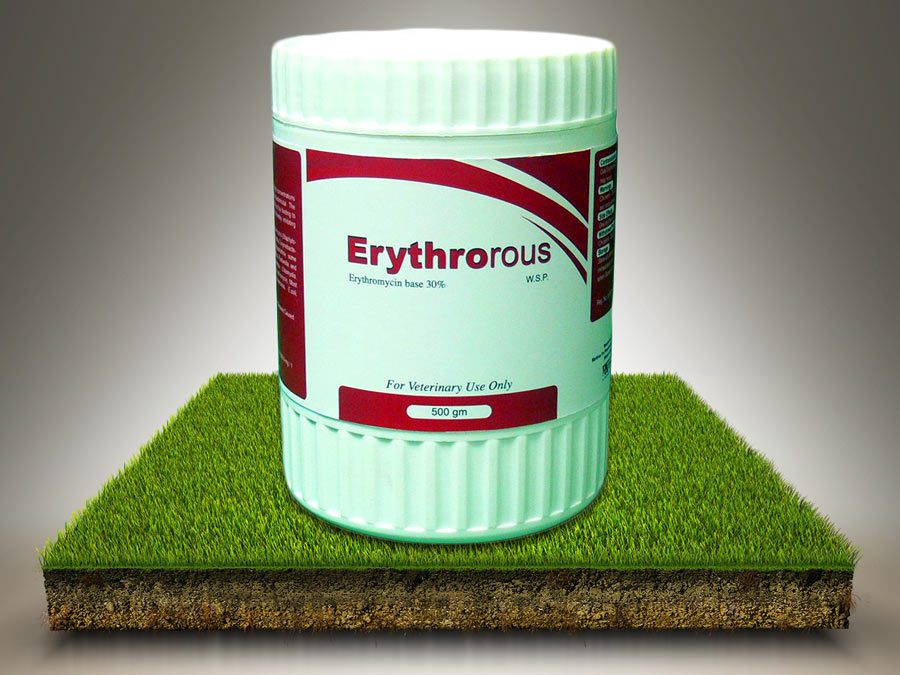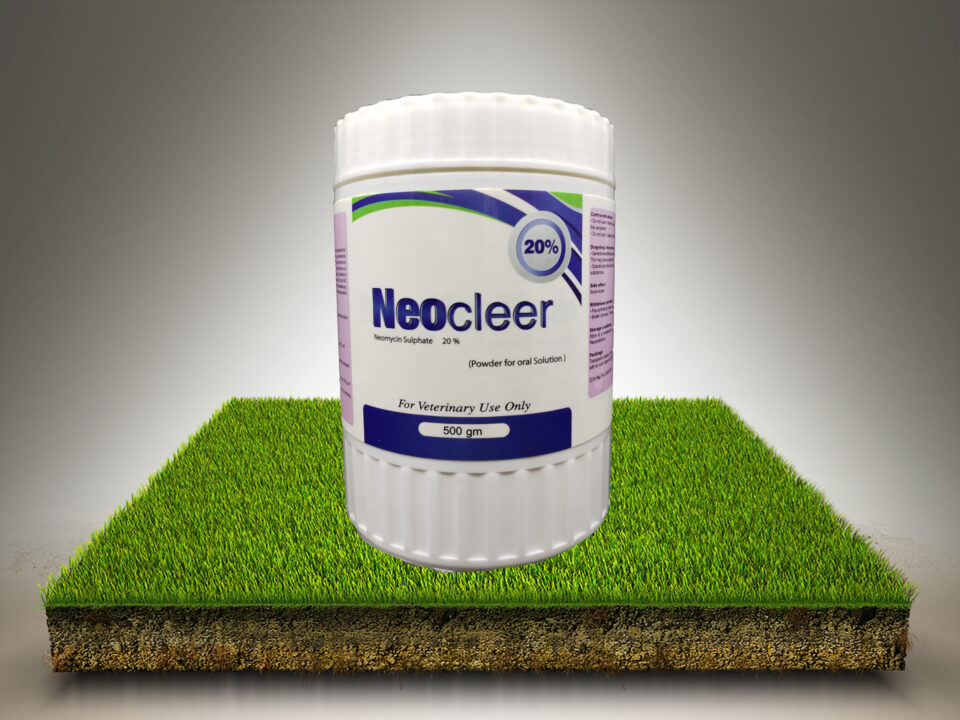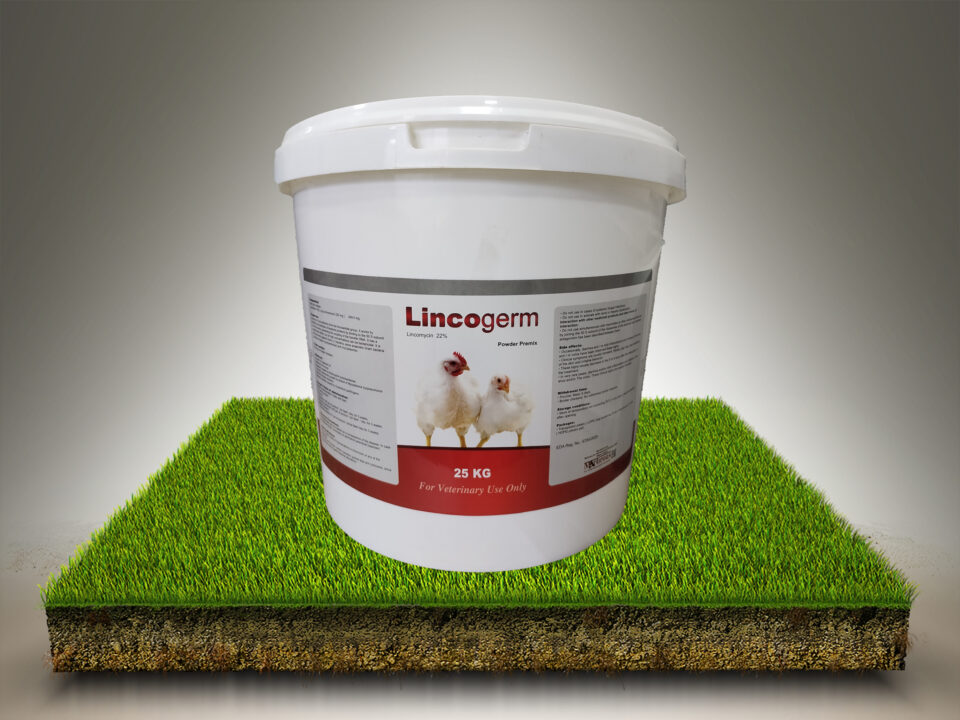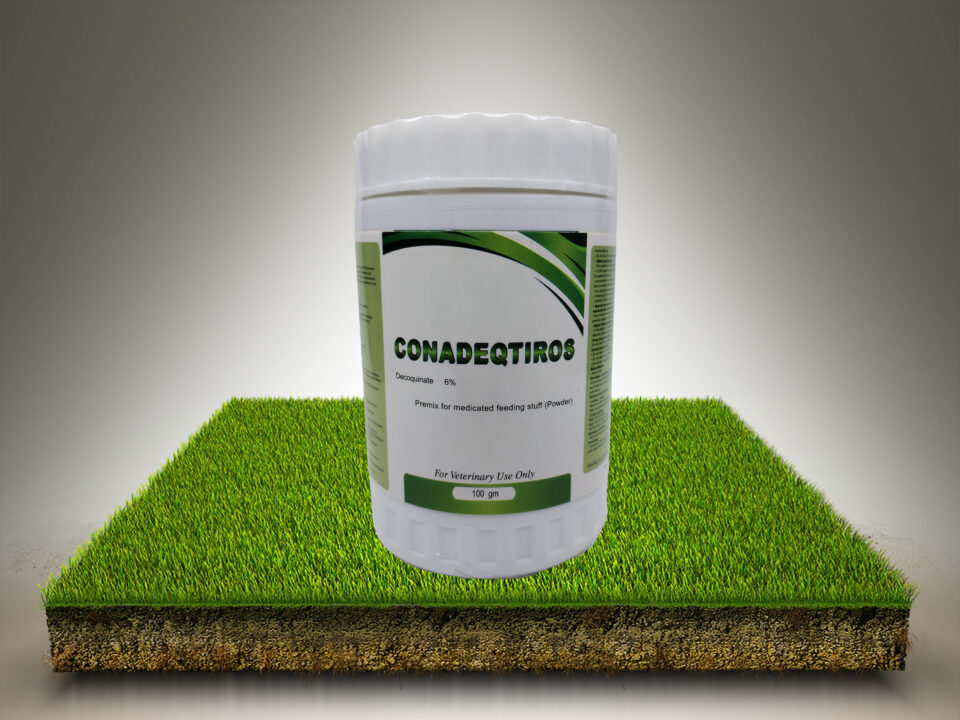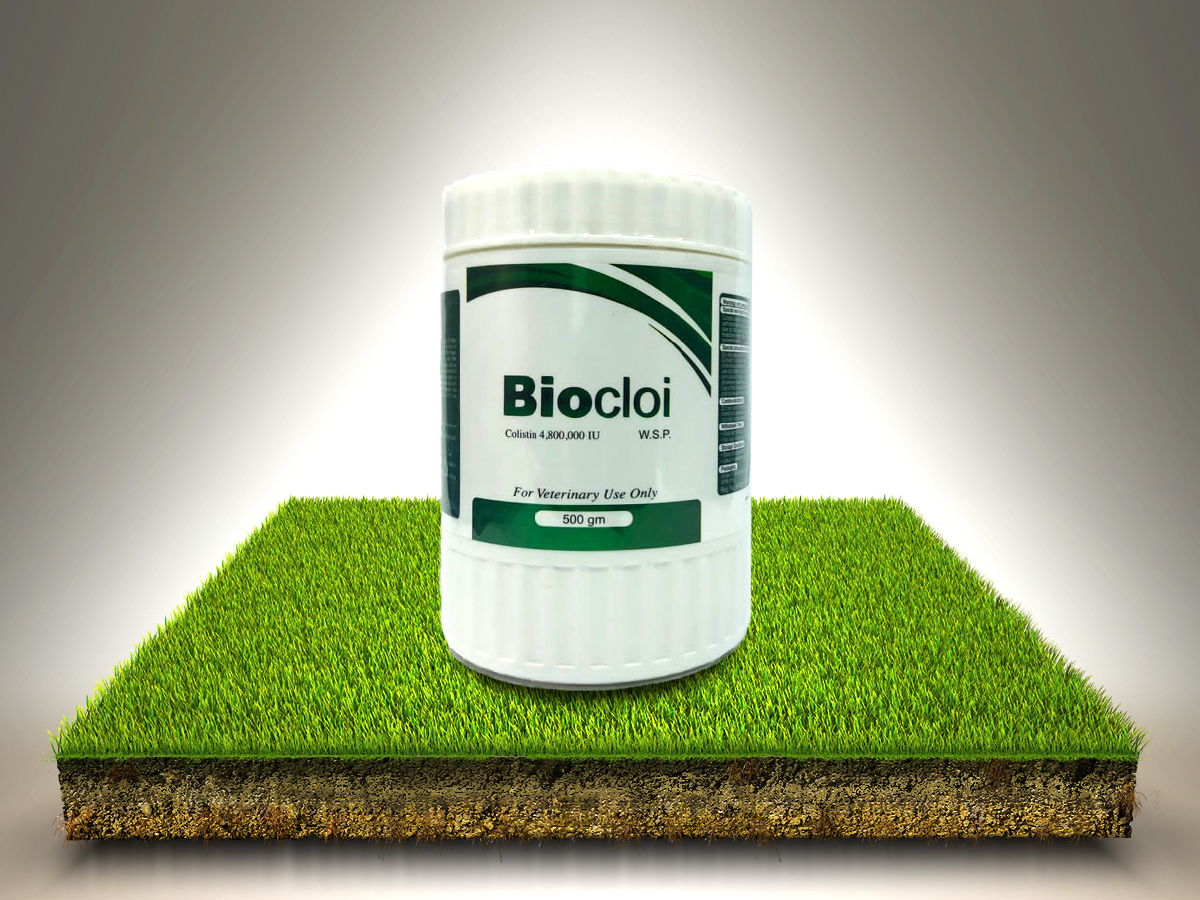
Biocloi
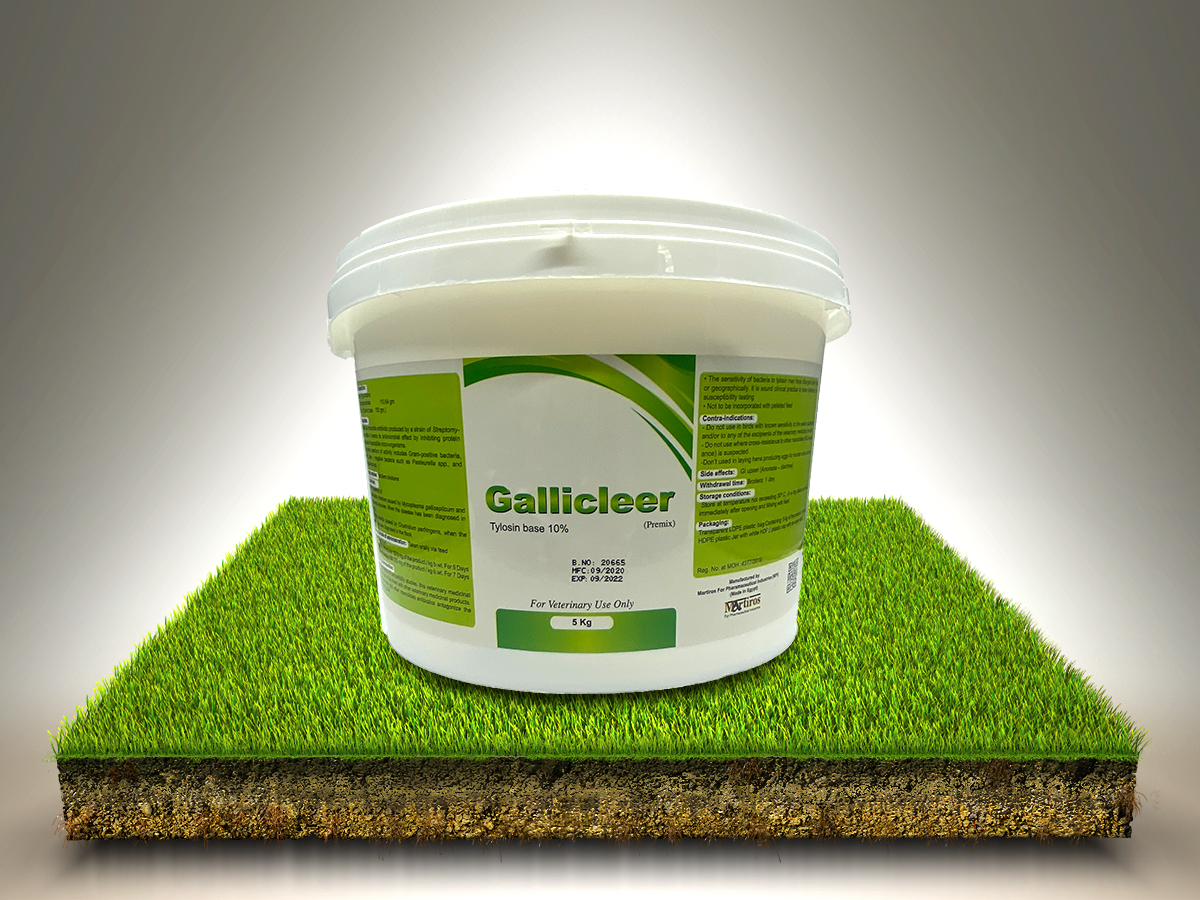
Gallicleer
W.S.P.
For veterinary use only
Composition :
Each 100 gm contains:
Erythromycin Activity (As Phosphate) 30 gm
Properties:
Erythromycin is usually a bacteriostatic agent, but in high concentrations or against highly susceptible organisms it may be bactericidal. The macrolides (erythromycin and tylosin) are believed to act by binding to the 50 S ribosomal subunit of susceptible bacteria, thereby inhibiting peptide bond formation.
Erythromycin has in vitro activity against gram positive cocci (staphylococci, streptococci), gram positive bacilli (Bacillus anthracis, Corynebacterium, Clostridium sp., (not C. difficile), Listeria, Erysipelothrix), some strains of gram negative bacilli, including Haemophilus, Pasturella, and Brucella. Some strains of Actinomyces, Mycoplasma, Chlamydia, Ureaplasma, and Rickettsia are also inhibited by erythromycin. Most strains of the family Enterobacteriaceae (Pseudomonas, E.coli, Klebsiella, etc.) are resistant to erythromycin.
Indications:
Chickens: For oral treatment of Chronic Respiratory Disease Caused by Mycoplasma spp.,
Target Species:
Chickens.
Dosage& route of administration:
Dose for whole product:
Chickens: 166.66 gm / 100 Liters of drinking water or 1666.6 mg / 1 Liter of drinking water.
Medicated Water Should be used within 24 hours
Warnings :
Chickens : Do not use with tetracyclines, chloramphenicol, macrolides and lincosamides.
Contra-indications
Oral erythromycin should not be used in ruminants as severe diarrheas may result.
Side-Effects:
Oral erythromycin may cause GI disturbances with diarrhea, anorexia.
Withdrawal Periods:
Chickens : Slaughter 3 days
Eggs : 6 days
Storage:
Store at a temperature not exceeding 30°C in a dry place and used immediately after opening and used within 24 hours after reconstitution when Stored at a temperature not exceeding 30°C
Packaging:
Colorless ( LDPE) plastic bag containing 20,25,50,100,150, 200,250,300,500 and 1000 gm WSP in white ( HDPE) plastic jars with an outer label with white ( HDPE) cap without insert.

